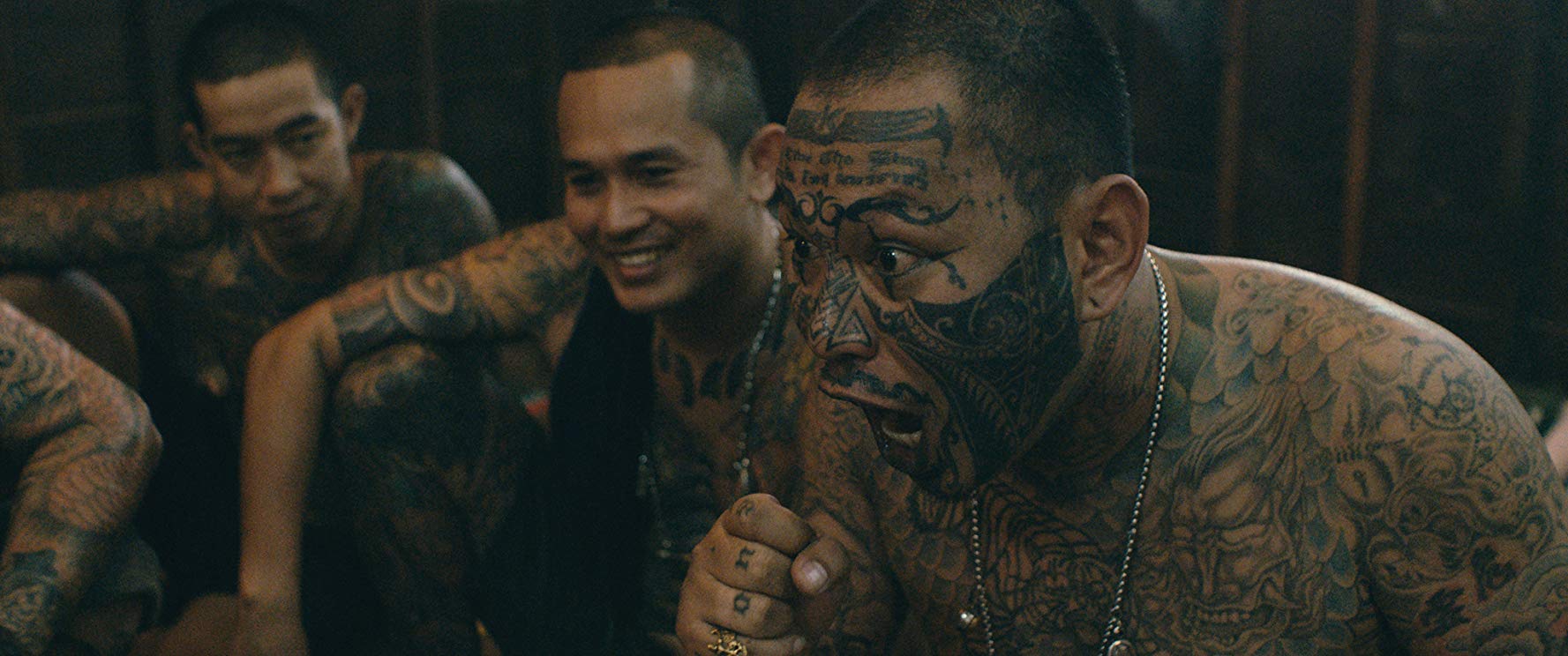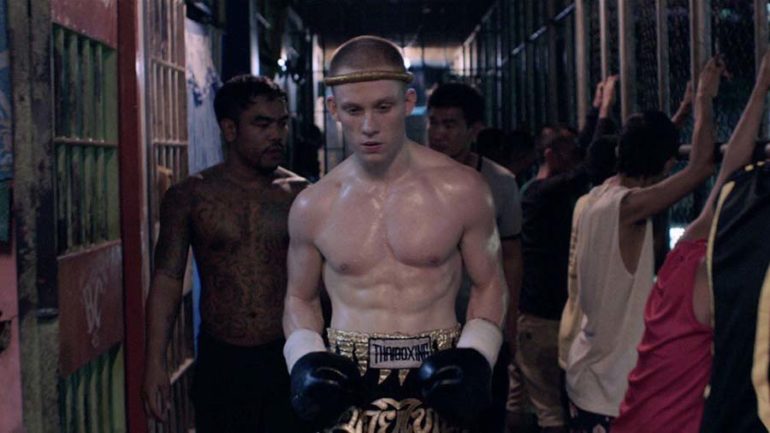An early scene in this film shows our protagonist Billy (Joe Cole) sitting quiet and cross-legged for a prison assembly, the only white man in a mass of Thai bodies. Just to the left, a corpse is wrapped in a white sheet to be taken away by prison officials. The indifference of the onlookers to this occurrence speaks volumes about the setting of this movie. Thai prison, as one might well guess, is no place for the faint of heart.
The incident which sees Billy end up behind bars is not outlined; indeed, this lax approach to detail is something of a recurring stylistic feature of the film. It just about finds time to show us his arrest before we are plunged into the unforgiving surroundings of Klong Prem prison in Bangkok. Conditions are bleak; inmates sleep shoulder to shoulder on a concrete floor, running water is scarce, and a brutal hierarchy exists among the prisoners. We witness gang rape and punishment beatings, and are given no indication that either is an unusual event.
A contributor to Billy’s criminality is his addiction to ya ba, a form of methamphetamine which has increasingly become a thorn in the side of Thai society (the literal English translation is “crazy drug”). Predictably, Billy’s habit complicates his stay in prison, and sees him get into more than one difficult situation. Joe Cole’s portrayal of addiction is possibly the strongest facet to his performance; the ferocity of his withdrawals, and the desperation they bring, is keenly felt.

As there are no subtitles, and as practically nobody in the film except Billy can speak English, there is little dialogue (or, at least, little dialogue that is of benefit to an Anglophonic audience). This approach presumably sought to give viewers a more authentic first-person view of Billy’s story, and it works to an extent; we quickly develop an appreciation for the fear and isolation that must be felt by someone incarcerated in a foreign place, largely unable to make anything but the simplest of communication. Were the film shorter, it could have come off beautifully; however, two hours proves too great a test for such a strategy. By the end, the allure of the uncertainty has worn off, and the near-unintelligible interplay between characters has become somewhat tiresome.
The film’s length also provides cause for frustration at its sparse detailing. It is easy to forgive a movie for being economical with baJoe Coleckstory when it is a tightly packed 90-minute affair. A Prayer Before Dawn runs to two hours, however, and this length is difficult to justify with as bare a storyline as is on offer here.
Billy’s road to redemption comes in the form of Thai boxing, a more liberal incarnation of regular boxing in which kicking and grappling are permissible. As he attempts to prove his worth as a fighter, his living circumstances improve and he is given the opportunity to reverse his poor fortune. Jean-Stéphane Sauvaire’s stylistic approach to fight scenes has a consistency with his decision not to use subtitles; the close, fluid camerawork and diegetic sound put us right in Billy’s shoes as he takes on his opponents. While this can make it difficult to determine who’s hitting who, it does an excellent job of immersing the viewer in realistic, intense fight sequences.
A Prayer Before Dawn is a profoundly evocative film, and Sauvaire’s use of sound and visuals is tremendously skilled. Unfortunately, its storyline and character development are poor. We are given relatively little insight into Billy as a character (considering he’s more or less the only character in the film) and many sequences are overwrought, leaving the film somewhat bloated by the end. Nevertheless, this is a worthwhile watch, if not an easy one.

